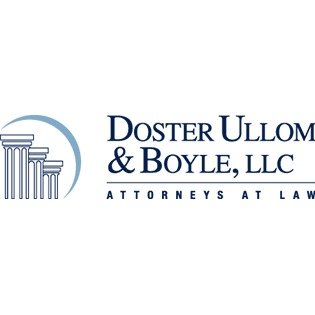Best Trusts Lawyers in Chesterfield
Share your needs with us, get contacted by law firms.
Free. Takes 2 min.
List of the best lawyers in Chesterfield, United States
About Trusts Law in Chesterfield, United States
Trusts law in Chesterfield, United States encompasses the creation of a legal entity that holds assets for the benefit of another person, group or organization, known as beneficiaries. It involves various aspects such as estate planning, asset protection, and tax planning. The laws governing trusts are shaped by both state and federal legislation, with state laws governing most aspects. Thus, the specifics can vary significantly depending on your location.
Why You May Need a Lawyer
While creating a simple trust can be straightforward, the legal intricacies involved in more complex situations often require professional guidance. You may need a lawyer if you are dealing with large or diverse estates, long-term distribution to beneficiaries, tax implications, or provisions for a special-needs beneficiary. Lawyers can also help in identifying the type of trust that suits your needs, be it a living trust, testamentary trust, revocable trust, or irrevocable trust.
Local Laws Overview
In Chesterfield, just as in many other states, a trust must have a lawful purpose and must be created for a valid reason. It should be funded with legal property and should clearly indicate the trustee and beneficiary. The trustor and the trustee could be the same person. A Trustee holds a fiduciary duty to manage the trust in the best interest of the beneficiary and according to the terms of the trust. Any misuse of the trust's assets by a trustee can result in legal consequences.
Frequently Asked Questions
What can I include in a trust in Chesterfield?
In a trust, you can include almost any property, such as houses, cash, stocks, bonds, collections, business interests, and personal possessions.
Can a trust be cancelled in Chesterfield?
Whether a trust can be cancelled depends on the type of trust. A revocable trust can be cancelled or modified at any time, while an irrevocable trust generally cannot be cancelled unless all parties agree.
Who oversees the activities of a trustee in Chesterfield?
The courts can oversee the activities of a trustee, but generally speaking, the oversight is primarily performed by the beneficiaries of the trust.
How does a trust impact my taxes in Chesterfield?
A trust can play a significant role in your financial planning. The tax implications of trusts vary depending on the type of trust established. Some trusts provide income tax benefits, some provide estate tax benefits, and some provide both.
Do I need a lawyer to settle a trust in Chesterfield?
While technically no lawyer is required to settle a trust, complex laws and legal procedures involved may necessitate assistance from a legal professional for successful and smooth settlement.
Additional Resources
For further guidance, consult the American Bar Association resources related to Trusts and Estates Law. The National Academy of Elder Law Attorneys provides useful information about trusts and elder law.
Next Steps
If you need legal assistance with a trust in Chesterfield, consider consulting a lawyer specializing in estate planning or trust law. Gather all relevant documents related to your assets and understand your financial goals before your meeting. The lawyer can help you understand the best approach to secure your assets and your beneficiaries' future.
Lawzana helps you find the best lawyers and law firms in Chesterfield through a curated and pre-screened list of qualified legal professionals. Our platform offers rankings and detailed profiles of attorneys and law firms, allowing you to compare based on practice areas, including Trusts, experience, and client feedback.
Each profile includes a description of the firm's areas of practice, client reviews, team members and partners, year of establishment, spoken languages, office locations, contact information, social media presence, and any published articles or resources. Most firms on our platform speak English and are experienced in both local and international legal matters.
Get a quote from top-rated law firms in Chesterfield, United States — quickly, securely, and without unnecessary hassle.
Disclaimer:
The information provided on this page is for general informational purposes only and does not constitute legal advice. While we strive to ensure the accuracy and relevance of the content, legal information may change over time, and interpretations of the law can vary. You should always consult with a qualified legal professional for advice specific to your situation.
We disclaim all liability for actions taken or not taken based on the content of this page. If you believe any information is incorrect or outdated, please contact us, and we will review and update it where appropriate.








